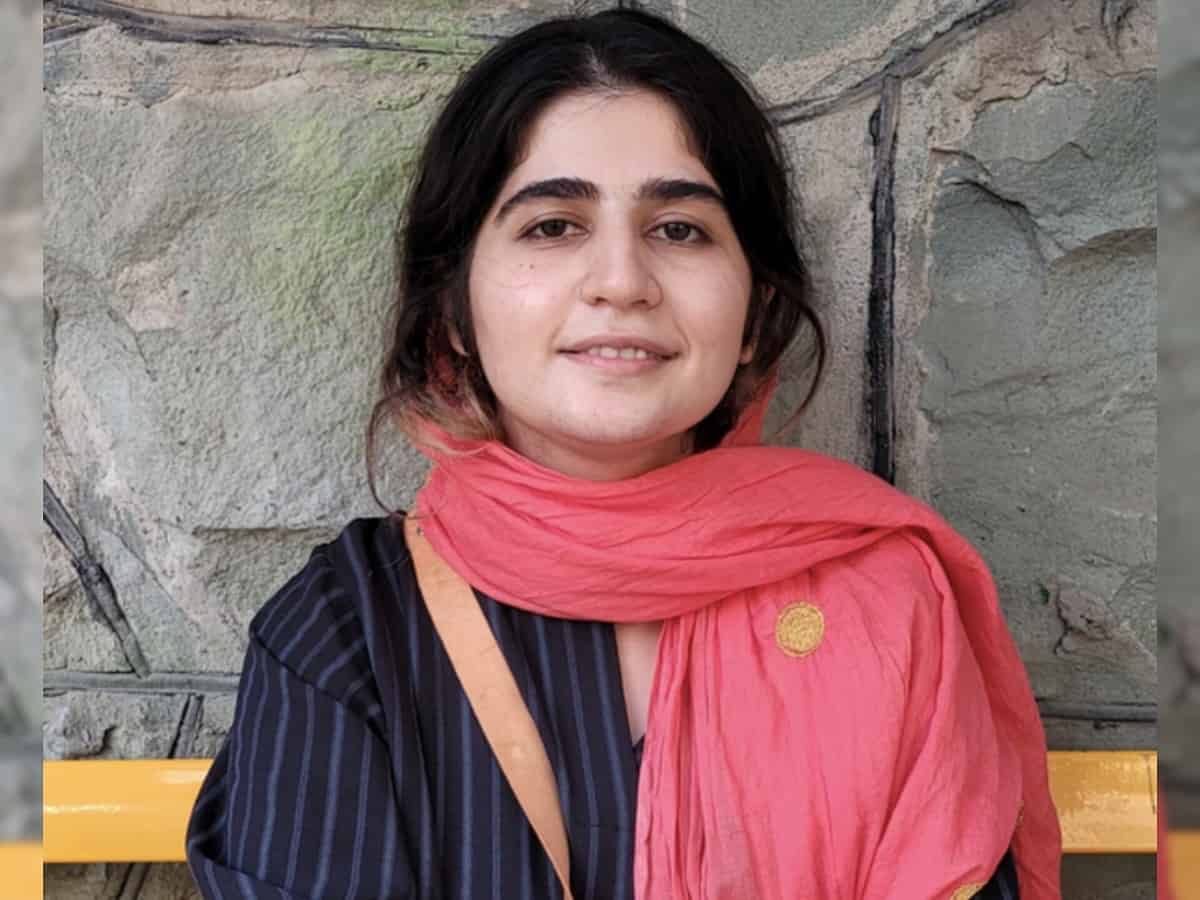
Tehran: One of Iran’s prominent women activist, Sepideh Qolian has narrated the brutality the prisoners are facing and forced confessions on Iranian television in a letter she wrote from Evin prison in Tehran, local media reported.
Qolian was arrested in 2018 and convicted of working “against national security” for supporting a strike and protest by workers at a sugar factory in Iran’s Khuzestan province. She is serving a five-year sentence.
According to the BBC, Qolian talked about how the authorities forced the detainees to confess during the brutal interrogation process.
The activist drew attention to the current protests in Iran, which erupted after the death of 22-year-old Mohsa Amini, and said, “In the fourth year of my imprisonment, I can finally hear footsteps of liberation from all over Iran.”
“The echoes of ‘Woman, Life, Freedom’ can be heard even through the thick walls of Evin prison,” she added.
Qolian is currently studying law at Evin Prison, and as part of her studies, she is required to take exams. The exams take place in the cultural wing of the prison, which, according to her, has been turned into a “torture and interrogation cell”.
In the letter, she says that she has witnessed the interrogation of young men held in this very building.
“The exam room is full of boys and girls and the screams of the torture can be heard,” she said.
In the letter, she recalled one particular incident that occurred on December 28, 2022, Qolian wrote, “It was freezing cold and snowing, near the exit door of the building a young boy, blindfolded and wearing nothing but a thin gray shirt, was sitting in front of the investigator.”
“He’s shaking and pleading: ‘I swear to God I didn’t beat anyone.’ They want him to confess. As I am passing I shout: ‘DO NOT confess,’ and ‘Death to you tyrants,’ she added.
Sepideh Qolian recalls her own confession
In 2018, Sepideh was arrested for expressing support for a workers strike that took place at a sugar factory in Iran’s Khuzestan province.
After her arrest, she was interviewed by a female officer. She expected that a female interrogator would at least save her from the possibility of being sexually assaulted and that a woman might be softer on her.
However, her hopes were crushed after the officer “kicked the leg of the table and exclaimed ‘you communist wh*re, who did you sleep with?’”
Qolian added that she accepted, in the end, after torture, to make forced confessions in front of the camera, and wrote, “After 3 continuous days of waking up, maybe more, interrogation and confinement in the toilet, as if I lost consciousness, I took the prepared text, and read it half-consciously, And with every line, as if a whip hits my soul and my body.”
Based on these confessions, she was sentenced to five years in prison.
Qolian identified her interrogator as Amna Sadat Zabihpour, who was sanctioned by the US Treasury Department in November for her role in obtaining and broadcasting forced confessions from dual nationals and other prisoners.
Qolian concluded her letter by describing the ongoing protests against the regime in Iran as a “revolution.”
Iran has been witnessing protests since the death of 22-year-old Mahsa Amini, on September 16, after she was arrested in Tehran by the morality police on suspicion of not respecting the country’s dress code.
The demonstrations involving people from all walks of life and different sects in Iran after Amini’s killing.
Iranian women are at the fore in the demonstrations, in which many young people participate, to chants of “Woman life freedom” and “Death to the dictator.”
The protests represent one of the boldest challenges facing the country since the 1979 revolution.



